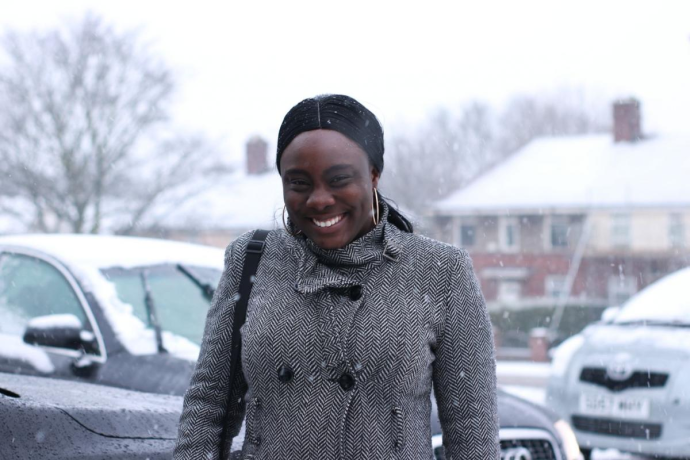Temi Labinjo, 34, is the Black & Ethnic Minority representative at Sheffield Hallam University Students’ Union and is working to raise awareness of endometriosis. This is her story.
"My name is Temi Labinjo and I am a 34-year-old Nigerian woman based in Sheffield, South Yorkshire. I am currently a third-year doctoral student and the black and ethnic minority representative at Sheffield Hallam University Students’ Union.
Right from when I was a teenager, I have always had menstrual pains which got worse in my twenties. After a few years, I noticed that the pains were getting worse, so I decided to visit a doctor. After several misdiagnosis, I came to the UK in 2015 and a laparoscopy was conducted which confirmed the diagnosis of severe stage 4 endometriosis.
Over the last ten years, endometriosis has affected me terribly. I was diagnosed officially in 2016 but have been having the symptoms since 2009. Within the last five years I have undergone five major surgeries.
The pain got so severe that painkillers were not working anymore. I had to leave a job some years back because of severe pains and the manager told me that because my condition is not ‘cancer’ the organisation will not be able to provide any support. I had to resign for the sake of my sanity.
It also impacted negatively on my fertility as I struggled to get pregnant. Being a Nigerian woman, there are a lot of cultural perceptions and expectations about having children. When this does not happen soon after marriage you are seen negatively. As a couple, we had to hide our decisions due to stigma and stereotype from people around us. I also had feelings of guilt and disappointment as a woman for not being able to do what other women do naturally due to the condition.
It was a very isolating experience due to the low level of awareness especially among black and minority women like me. I felt like I was the only black woman battling with the condition. It was a very isolating experience because I had no one to talk to. I had no one to share my experience with because everyone around doesn’t actually understand what you’re going through because they don’t have an idea about the condition. Some women might say every woman experiences menstrual cramps, so what’s so special about yours? I couldn’t share my experience except with my husband but sometimes you can’t really understand until you have experienced it yourself.
I am passionate about creating awareness among black and minority ethnic women like me who are going through similar issues because endometriosis can be a very isolating and traumatising experience for someone to go through alone. This is even worse when you have no idea of what’s going on with your body. Having a network of support helps improve the wellbeing of women, share their experiences and support each other, find ways that can work or relieve their conditions. Endometriosis is a complex disease being that what works for one may necessarily not work for another and there is currently no cure for the condition. All I have to do is hope that my condition continues to improve.
Joining an Endometriosis UK support group has really helped me to share my experience to women like myself who are going through similar experiences. The support session also made feel like I was not alone, and many women are going through similar experiences."
To find out more about Endometriosis UK Support Groups and how to attend a meeting, visit: https://www.endometriosis-uk.org/get-support.
You can also call our helpline for free on 0808 808 2227. For helpline hours, visit: www.endometriosis-uk.org/helpline







